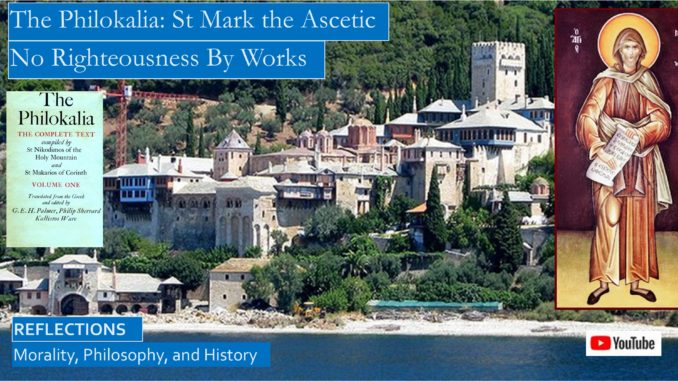
During my Lutheran catechetical classes as a youth I formed the impression that Luther discovered grace, the true doctrine that men could not be made righteous by works, the doctrine that was lacking in Catholicism and indeed lost since the days that St Paul penned the Epistle to the Romans, which proclaims:
“For I am not ashamed of the gospel; it is the power of God for salvation to everyone who has faith, to the Jew first and also to the Greek. For in it the righteousness of God is revealed through faith for faith; as it is written, ‘The one who is righteous will live by faith.’”[1]
But Luther was not the first to debate grace and justification. Most knowledgeable Lutherans will remind you that much of Lutheran theology is a re-interpretation of St Augustine’s doctrine of grace and predestination when preaching against the errors of the Pelagians. The distance between the Lutheran and Catholic positions are not as great as many believe, recently both churches have agreed upon a joint declaration on their beliefs on justification by faith.[2]
Youtube video for this blog: https://youtu.be/7Heuz7tRlBc
More by St Mark the Ascetic: http://www.seekingvirtueandwisdom.com/st-mark-the-ascetic-writings-on-the-spiritual-law/
After St Augustine debates similar to the Protestant-Catholic doctrinal matters on subjects like the true nature of the sacraments and on reason vs. faith and the role that grace plays in salvation were raging during the Carolingian Renaissance in Charlemagne’s kingdom.[3]
We should not be too surprised that St Mark the Ascetic wrote a treatise “On Those Who Think They Are Made Righteous by Works.” This debate was not exactly the same debate that raged between Protestants and Catholics.
Before we review this work for ourselves we will review the discussion of this work by St Mark the Ascetic in an excellent essay Bradley Nassif in “The Philokalia, A Classic Text of Orthodox Spirituality.” We encourage the reader to buy this volume and read the article for himself. Nassif notes that the difference between these debates hinges on differences in languages and translations.
Nassif observes, “In Reformation polemics, the debate centered on whether or not the Scriptures use the verb ‘justify’ to denote ‘divine acquittal of a believer through a legal declaration of being made right with God’ (Luther and Calvin), or a believer who is ‘made holy through moral acts of righteous behavior’ (Council of Trent)” This distinction so crucial in Protestant-Catholic debates is never debated in the Greek patristic tradition. The Greek word for ‘justify’ also means ‘righteous’ “with no theological difference implied.”
St Mark the Ascetics works were treasured by the monks of Mt Athos, the common advice was to “sell all you have, and buy St Mark the Monk.” St Mark and all the writers of the Philokalia urge us to “keep the Gospel clear and central to all our acts of Christian obedience,” the Gospel should be at the center of Christian spirituality. “Mark’s message is that all ascetic efforts of prayer, fasting, almsgiving, and church life will be dangerously misguided without a prior understanding of the free gift of grace as the foundation for all Christian living.”
St Mark the Ascetic was opposed to the misleading tendencies of a loose group of monks known as the Messalians, or those who pray. Nassif observes, “the major thrust of the Messalians was their challenge to the church as a sacramental body. They minimized the efficacy of baptism and the Eucharist while downplaying the church hierarchy. One group, known as the ‘righteous,’ emphasized asceticism and manual labor while the other, known as the ‘perfect,’ was based almost exclusively on a life of prayer and the absence of manual labor.” Nassif has an excellent and deep discussion of the beliefs of the Messalians that is great to ponder. The following are Nassif’s subheads, direct quotes from the Philokalia are numbered.
NOTE: Nassif is quoting from a translation of the Philokalia that differs from the numbering in the most commonly printed version, i.e., his Philokalia paragraph 211 is paragraph 223 in our Philokalia. The translation will differ also.
RIGHTEOUSNESS AS A GIFT OF GRACE
Nassifs observes that “salvation is a free gift of grace, it is not a reward for righteous deeds.” St Mark the Ascetic teaches that salvation is like a slave redeemed from slavery, “a slave does not demand freedom as a reward, but rather satisfies his master as someone who is indebted to him and who waits for his freedom as a gift.”(2) Good works are always good, “every good work that we do through our own nature causes us to abstain from its opposing evil, but without grace it cannot increase our holiness.”(23)
We should always search our heart for upright and humble motives. St Mark the Ascetic warns that “some, without keeping the commandments, think they are keeping the faith, while others, keeping the commandments, expect to receive the kingdom as a reward owed to them. Both are deprived of the kingdom.”(17) Our reward lies in our humble obedience, our salvation is our striving to live a more godly life.
Salvation is not a transaction, salvation is not bartering, salvation is a gift by grace, unearned. St Mark the Ascetic teaches us, “when the Scriptures say, ‘God will reward each person according to his works,’ the Scriptures are not saying that works deserve hell or the kingdom, but rather that works are done out of faith or lack of faith in Him. Christ repays each person not as a businessman fulfilling his contracts but as God, our Creator and Redeemer,” out of love for us, not out of bartered obligations.
Nassif clarifies, “good works are a necessary means of guarding or protecting the purity of our salvation that has been granted in baptism, but they should never lead us to think that God will repay us for them.” Perhaps our very capacity to perform good works is itself a gift of grace from God, as is certainly our very existence as sons of God who have the ability to ponder such imponderables.
RIGHTEOUSNESS AS A TASK OF GRACE
Nassif sees three consequences of our conversion through baptism. “First, good works are a response of gratitude rooted in the ‘spiritual law’ or the ‘law of freedom’; second, grace is secretly hidden in the heart of the baptized but requires keeping the commandments in order for that grace to be consciously revealed in the heart of the believer; third, ascetical labors are the duties of sonship and faithful service to Christ.”
What does the first point means, that good works are a response of gratitude rooted in the ‘spiritual law’ or the ‘law of freedom’? Every day we are free choose whether we wish to perform good works or the opposite. When we choose darkness and hedonistic pleasures we lose our freedom to our addictions, we become bitter and angry and resentful; but when we choose purity and light, our freedom grows through our obedience, we are gracious and grateful to all we meet.
How beautiful is St Mark the Ascetic’s description of grace, we would all benefit from a careful reading of this long paragraph. “Grace has been mystically bestowed on those who have been baptized in Christ, this grace becomes active in them to the extent they keep the commandments. Grace never ceases to secretly help us but it is up to us, as far as it lies within our own power, to do good or not to do good. Grace first rouses the conscience in a manner that confirms to God’s wishes; that is how even evildoers have repented and come to please God. Again, grace may be hidden in a neighbor’s advice. There are times when grace accompanies one’s thoughts when one is reading and, as a natural consequence, teaches the mind the truth about itself. If, therefore we do not hide the talent that has in consequence been given to us, we shall without a doubt enter into the Lord’s joy.”(56)
We should be generous in our good works. St Mark the Ascetic teaches us, “we who have been considered worthy to receive the washing of regeneration offer good works not as repayment, but as a means of preserving the purity that has been given to us.”(22)
THE GOAL OF GRACE: TO LOVE AS GOD LOVES
Nassif observes that “true humility does not lead to self-praise or to self-condemnation, but to gratitude,” as St Mark the Ascetic teaches us, “humility consists, not in condemning our conscience, but in recognizing God’s grace and compassion.”(103)
Nassif further observes, “the aim of the ascetic life is not to merit the Kingdom of God or to engage in great ascetical feats as if they were ends in themselves, but to love as God loves. That is why grace opposes merit while including the hard work of holiness. The final goal is to cultivate Love for God and others through the practice of inner silence,” and by saying the Jesus prayer, Jesus Christ, Son of God, have mercy on me, a sinner. As St Mark the Ascetic teaches us, “the most comprehensive of all the commandments is to Love God and love our neighbor which is maintained by abstaining from material things and through still one’s thoughts.(211)[4]
Blog 2 of this series: http://www.seekingvirtueandwisdom.com/st-mark-the-ascetic-blog-2-no-righteousness-by-works/
[1] https://www.biblegateway.com/passage/?search=romans+1%3A16-17&version=NRSVCE
[2] Heinrich Denzinger, Compendium of Creeds, Definitions, and Declarations on Matters of Faith and Morals, 43rd Edition, edited by Peter Hunermann (San Francisco, Ignatius Press, 2012), paragraph 5081, pp. 1136-1137.
[3] Jaroslav Pelikan, “The Christian Tradition, Volume 3, The Growth of Medieval Theology (Chicago: University of Chicago Press, 1978), pp. 80-105.
[4] Bradley Nassif, “Concerning Those Who Imagine That They Are Justified by Works, The Gospel According to St Mark the Monk” in the Philokalia, A Classic Text of Orthodox Spirituality (New York: Oxford University Press, 2012), pp. 87-101.
NOTE: Nassif is quoting from a translation of the Philokalia that differs from the numbering in the most commonly printed version, i.e., his Philokalia paragraph 211 is paragraph 223 in our Philokalia. The translation will differ also.

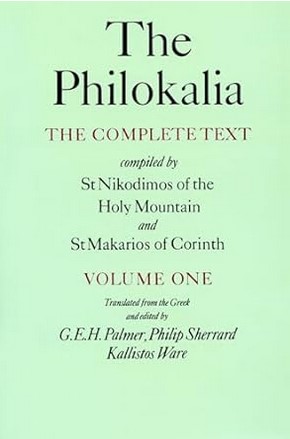
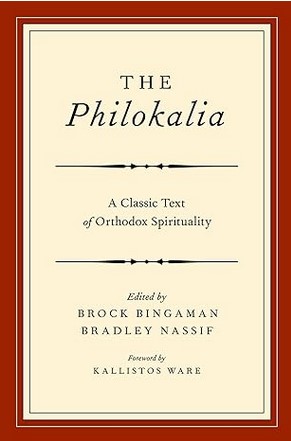

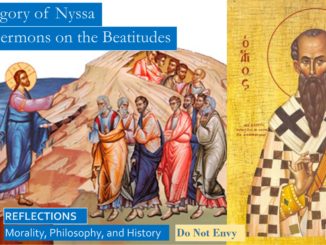
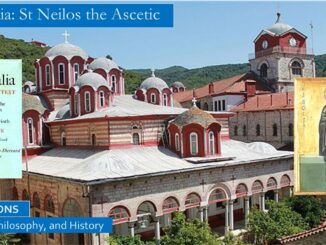
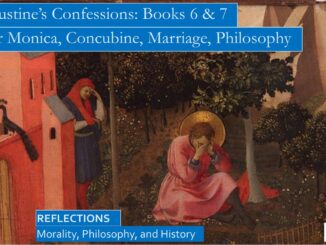
3 Trackbacks / Pingbacks